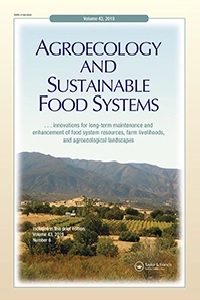Journal Article
Osorio-Garcia, Ana Milena
Osorio-García AM, Paz L, Howland F, Ortega LA, Acosta-Alba I, Arenas L, Chirinda N, Martinez-Baron D, Bonilla-Findji O, Loboguerrero AM, Chia E, Andrieu N. 2020. Can an innovation platform support a local process of climate-smart agriculture implementation? A case study in Cauca, Colombia. Agroecology and Sustainable Food Systems 4(3):378-411.
